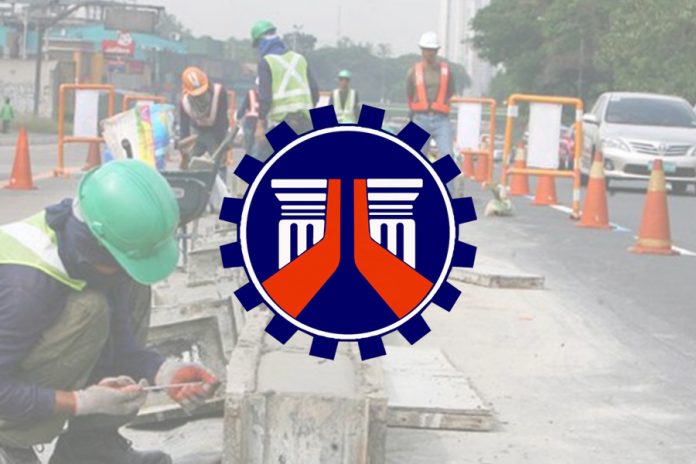
MANILA – Government bureaucracies have hindered the full implementation of the Duterte administration’s “Build, Build, Build” infrastructure program, particularly when it comes to the P662-billion budget of the Department of Public Works and Highways, the Commission on Audit said in its 2017 audit report.
The DPWH allotted 92.19 percent, or P610 billion, of its budget to government projects but only 33.6 percent, or P222.66 billion, was disbursed “due to the delayed/non-implementation of infrastructure projects,” the commission said.
According to COA, the allocation rate in 2017 was higher compared with the two previous years under the Aquino administration, such as 77.32 percent or P419.28 billion of P542.23 billion in 2016 and 78 percent or P33.975 billion of P435.58 billion in 2015.
“It is noteworthy to mention that the increase in obligation rates and cash allocation utilization rates showed that management has implemented vital reforms in its budget execution and disbursement forecasting,” COA said.
However, fund disbursements were lowest in 2017 compared 34.14 percent or P185.12 billion of P542.23 billion in 2016 and 34.03 percent or P148.23 billion of P435.58 billion in 2015.
State auditors said the low utilization rate “indicates that management was not able to effectively manage the increasing amount of funds entrusted to the agency due to low physical delivery of target project and activities.”
Projects delayed, unimplemented
A total of 2,334 projects costing P62.588 billion were not completed as specified in the contract, while 15 projects worth P2.1 billion were terminated.
There were also 135 projects suspended under the watch of the DPWH worth P6 billion in 2017, and 815 projects with an aggregate amount of P2.58 billion were unimplemented.
COA said 120 of the delayed projects with a total cost of P6.665 billion were 15 percent delayed, but the DPWH did not impose liquidation damages against the contractors.
Involved in the delays were 879 school buildings, 622 flood control projects, 100 farm-to-market roads, and 733 other infrastructure programs such as national highways and bridges.
The projects were affected by delayed approvals involving sites and the issuance of necessary permits from local government units, right of way issues, inadequate planning, lack of manpower, and difficulties in acquiring equipment, the COA said
The delays would have been prevented if the DPWH coordinated with concerned LGUs and private contractors during the planning stage of each project.
“Due to the delayed implementation of the projects, DPWH was exposed to risks of increased project costs and unenforceable All Risk Insurance due to prolonged period of implementation,” COA noted.
“Consequently, the intended beneficiaries of these delayed, suspended, terminated and unimplemented projects were deprived of their immediate use. Other government agencies also suffered setbacks in the delivery of basic social services due to the absence of these infrastructure,” it said.
The commission recommended that the DPWH facilitate and finish all its obligated projects and coordinate with LGUs and contractors on the completion of all on-going and unimplemented programs.
The DPWH is also urged to initiate the take-over process for terminated projects and coordinate with LGUs and other government agencies on the issuance of permits needed for project implementation.
In its comment, the DPWH assured that no contract will be awarded in the future until all right of way issues have been settled.
The DPWH said the cost of government permits will also be included in the bill of quantities of future infrastructure projects to avoid delays. (GMA




